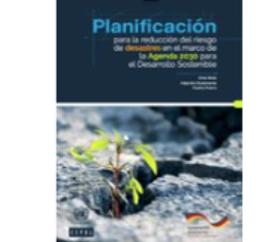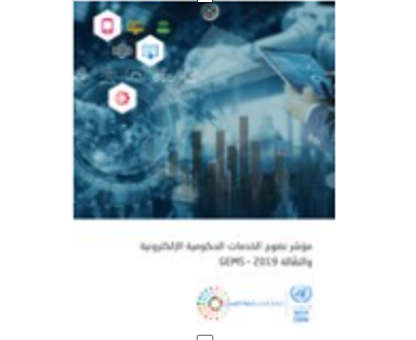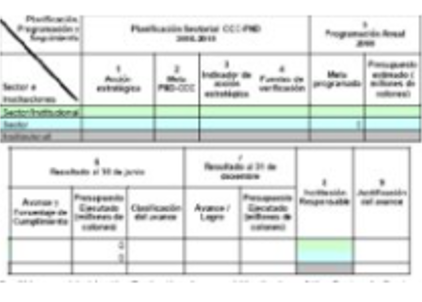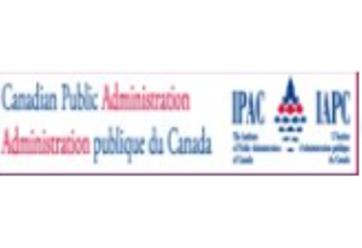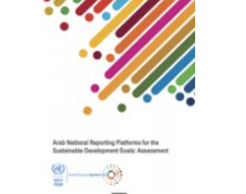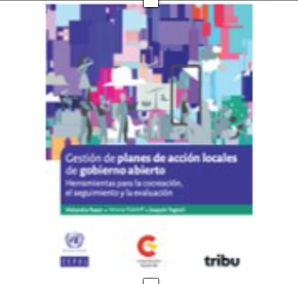Resources
Displaying 1 - 11 of 11
Planning for Disaster Risk Reduction within the Framework of the 2030 Agenda for Sustainable Development
| Spanish | Governance and Public Institutions | Americas | Publication | ECLAC
A disaster can lead to setbacks in the economic and social progress achieved by countries over the decades, and its effects can be exacerbated in the case of the most vulnerable groups. The severity of the impact will depend on the ability of countries to detect and overcome their vulnerabilities. This document, especially aimed at policymakers, shows how, through development planning, the foundations for a comprehensive approach can be laid,…
Building the Arab Digital Economy – A Strategy Blueprint
| English | Digital Government | Middle East | Publication | ESCWA
Over the past decade, global economic growth rates have continuously declined. The extent of this trend, influenced by developments in digital technologies, are yet to be fully captured. Today, numerous national efforts are deemed to be largely ineffective in terms of their responsiveness to new and emerging social, economic and political landscapes. What are the strategic directions and policy roadmaps for a thriving digital economy that spans…
Government Electronic and Mobile Services (GEMS) Maturity
| English | Digital Government | Middle East | Publication | ESCWA
GEMS indicator aims to measure the maturity of government services provided through the portal and through mobile applications in the Arab region. It seeks to bridge the gap in most of the international indicators, related to service maturity, its use and user satisfaction. To this end, 84 government services have been identified, and it is necessary for each country to deliver them electronically for individuals and businesses. The principle of…
Comprehensive Performance Indicators of the Public Sector
| English | Spanish | Leadership and Public Servants’ Capacities | Americas | Publication | CLAD
The monitoring and evaluation information is conditioned on a series of factors in order to be used effectively. Various studies bear witness to rather formal uses - such as information that accompanies accountability to Congress and annual management reports of the agencies - but there is less emphasis on uses for the use of learning and for the allocation of spending (Cunill and Ospina 2008) (Villarreal, July, 2007).
This study starts…
Building an AI Nation: Accelerating Artificial Intelligence Adoption through Agile Policymaking – The Case of the UAE
| English | Leadership and Public Servants’ Capacities | Middle East | Publication | ESCWA
We live in a world of rapid change that may be best characterized as a ‘VUCA world’: Volatile, Uncertain, Complex and Ambiguous. Effectively, it is a new world where old laws and rules no longer apply. The advanced technologies of the digital age are disrupting ‘business as usual’ and no industry is immune. Not to be left behind, governments have to predict the future by imagining what the world will be like and ‘adapt’ at the same pace, all…
From Colonization to Reconciliation: Increasing the Collaborative Capacity of Public Servants
| English | Spanish | Leadership and Public Servants’ Capacities | Americas | Publication | IPAC/IAPC
In call to action 57, the Truth and Reconciliation Commission calls upon federal, provincial, and territorial governments to enhance the skills and knowledge of public servants. Leveraging collaboration theory and collaborative capacity, this article delves deeper into the skills, attitudes, and knowledge required of public servants who regularly work with First Nations organizations and governments. Using findings from a health care…
Arab National Reporting Platforms for the Sustainable Development Goals: Assessment
| English | Digital Government | Middle East | Publication | ESCWA
SDGs National Reporting Platforms (NRPs) are essential to help member countries to achieve their national development goals and are crucial elements to monitor and report the progress towards achieving the SDGs at all levels. The objective of these platforms is to create sustainable pathways for sharing transparent information, offering easy analysis tools that enable Governments and policymakers set, evaluate their progress, and adjust…
The Ingredients for Innovations in Small Town Ontario: Leadership& Culture
| English | Local Governance | Americas | Publication | IPAC/IAPC
The majority of services that Canadians receive from government are from local governments, including vital services, such as water, sanitation and public transit (Downer and Foster 2017). As more facets of their life move into the digital realm, Canadians are understandably demanding more digitally-focused servicing from their governments at all levels (Cukier 2019). Municipalities are facing increased expectations to meet this demand and…
Management of Local Open Government Action Plans: Tools for Co-creation, Monitoring and Evaluation
| Spanish | Local Governance | Americas | Publication | ECLAC
In Latin America and the Caribbean, a large number of innovations and reforms linked to the promotion of open government occur in subnational territories. That is the scale on which governments can collaborate with citizens and other actors more directly and closely. The creation of spaces and mechanisms for participation, transparency and accountability allows those who inhabit the territories to have a greater impact on public policies,…
Legal Aspects of Open Government and Open Data
| English | Digital Government | Middle East | Publication | ESCWA
Laws and regulations related to access to information and openness are very important for the implementation of open government principles. These laws cover several areas, such as access to information, protection of personal data, citizen participation and anti-corruption. However, the access information law is the basis and core stone for open government. The adoption of this law, and its implementation are of great importance for launching…
Sustainable Development Goals: Building New Routes for Public Administrations
| English | Leadership and Public Servants’ Capacities | Americas | Publication | ICAP
The report contributes to three reflections that could be a little light on the current debate; The first is that there must necessarily be a reformulation of the seventeen SDGs or in any case a prioritization of their implementation. In this line, and in line with the proposal of authors specialized in development and what is expressed by international organizations themselves, the collaborative action between the State and society should…
 欢迎来到联合国,您的世界!
欢迎来到联合国,您的世界!
